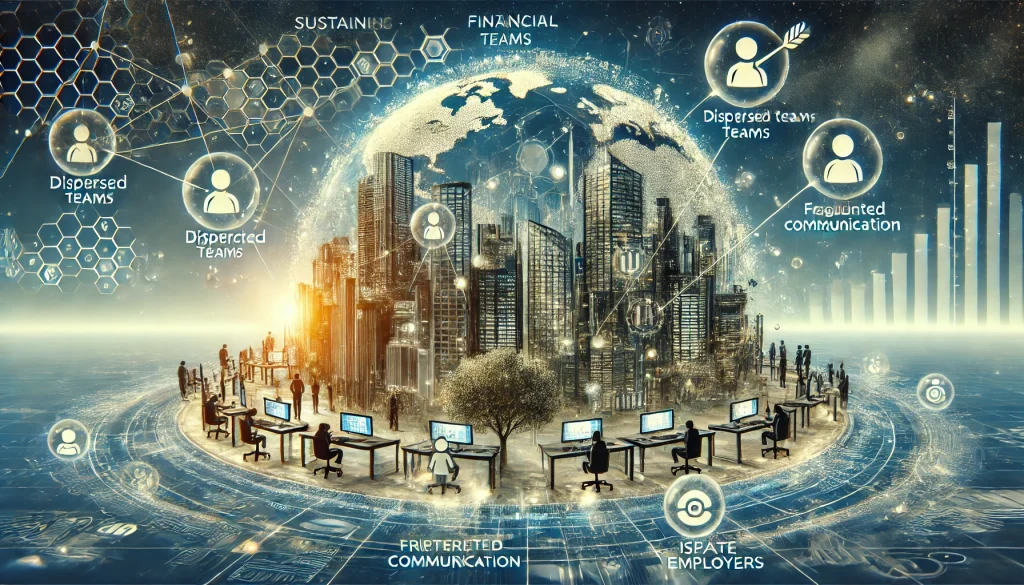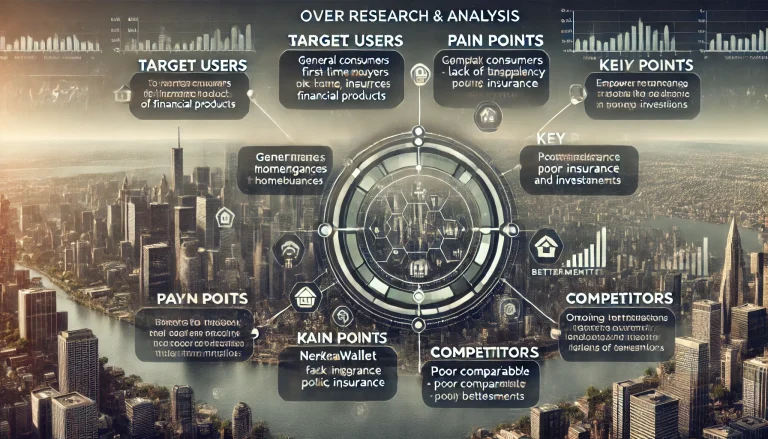Problem Statement :
The COVID-19 pandemic has accelerated the shift to remote work, forcing financial firms to quickly adapt to a new way of operating. While this transition has enabled business continuity during a global crisis, it has also introduced significant challenges, particularly in maintaining a strong corporate culture. Traditionally, corporate culture has been nurtured through in-person interactions, shared experiences, and the daily rituals of office life. However, with teams now dispersed across different locations and time zones, fostering a sense of community, engagement, and shared purpose has become more difficult.
Employee engagement is a critical component of corporate culture, and it can suffer in a remote work environment where employees may feel isolated or disconnected from their colleagues and the organization’s mission. Collaboration, another pillar of corporate culture, also faces challenges as teams navigate the complexities of virtual communication and the lack of spontaneous, in-person interactions that often spark creativity and innovation. Additionally, the absence of physical office spaces can dilute the sense of identity and belonging that comes from working in a shared environment.
For financial firms, these challenges are particularly acute given the high stakes and fast-paced nature of the industry. Maintaining a strong corporate culture is essential not only for employee satisfaction and retention but also for ensuring that teams remain aligned with the organization’s goals and values. To address these challenges, firms must find innovative ways to build and sustain a cohesive corporate culture in a remote or hybrid work environment, leveraging technology, communication strategies, and leadership practices that keep employees connected and motivated, regardless of where they work.
Pain Points:
- Employee Engagement: Difficulties in keeping employees engaged and motivated when working remotely.
- Collaboration Challenges: Reduced opportunities for spontaneous collaboration and creative problem-solving.
- Sense of Belonging: Employees may feel isolated and disconnected from the company’s culture and values.
- Communication Barriers: Virtual communication can lead to misunderstandings and a lack of personal connection.
- Leadership Visibility: Leaders may struggle to maintain visibility and presence in a remote work environment.
- Cultural Dilution: The absence of a physical office space can weaken the shared identity and sense of belonging.
- Onboarding and Integration: New employees may find it challenging to integrate into the company culture without in-person interactions.
- Work-Life Balance: Remote work can blur the boundaries between work and personal life, leading to burnout.
- Trust and Accountability: Building and maintaining trust in a remote environment can be challenging for both employees and managers.
- Technology Fatigue: Over-reliance on virtual meetings and communication tools can lead to fatigue and disengagement.

Future Vision:
The future of corporate culture in financial firms will be shaped by a hybrid work model that combines the flexibility of remote work with the benefits of in-person interactions. Firms will need to rethink how they foster a sense of community, engagement, and shared purpose in a dispersed workforce. This will involve leveraging technology to create virtual spaces that replicate the social and collaborative aspects of the physical office. For example, virtual reality (VR) and augmented reality (AR) platforms could be used to create immersive meeting environments that bring remote teams closer together.
Leadership will play a crucial role in sustaining corporate culture, with a greater emphasis on transparency, empathy, and communication. Leaders will need to be more intentional about connecting with employees, ensuring that everyone feels included and valued, regardless of their location. Regular virtual town halls, one-on-one check-ins, and informal social events can help maintain a sense of connection and belonging.
In addition, firms will focus on developing programs that support employee well-being and work-life balance, recognizing that remote work can blur the lines between personal and professional life. Flexible work hours, mental health resources, and initiatives that promote physical activity and social interaction will become integral to sustaining a healthy corporate culture.
Technology will also be leveraged to enhance onboarding and integration processes for new employees, ensuring that they feel connected to the company’s culture from day one. Virtual mentorship programs, interactive onboarding platforms, and regular check-ins with managers will help new hires acclimate to the company’s values and expectations.
Ultimately, the goal is to create a corporate culture that is resilient, adaptable, and inclusive, where employees feel connected and motivated, no matter where they work. By embracing innovation and prioritizing employee well-being, financial firms can build a strong corporate culture that thrives in a remote or hybrid work environment.
Use Cases:
- Virtual Team Building Activities: Implementing online games, workshops, and social events to strengthen team bonds.
- Remote Onboarding Programs: Creating interactive, digital onboarding experiences that introduce new hires to the company culture.
- Hybrid Work Schedules: Offering flexible work arrangements that allow employees to balance remote work with in-person collaboration.
- Employee Recognition Platforms: Using digital tools to recognize and celebrate employee achievements and contributions.
- Virtual Leadership Presence: Leaders maintaining visibility through regular video updates, virtual town halls, and interactive Q&A sessions.
- Wellness Initiatives: Providing resources and programs focused on mental health, work-life balance, and physical wellness.
- Collaborative Technology: Investing in collaboration tools like Slack, Microsoft Teams, or VR platforms that facilitate seamless communication.
- Cultural Ambassadors: Designating employees to champion the company culture and mentor new hires in a remote setting.
- Regular Feedback Loops: Establishing channels for continuous feedback from employees to improve remote work practices.
- Inclusive Communication Strategies: Ensuring all employees are included in communications and have access to the information they need.
Target Users and Stakeholders:
- Target Users:
- Remote Employees: Age 25-55, both genders, working from various locations, seeking connection and engagement with the company culture.
- HR Professionals: Age 30-60, both genders, responsible for maintaining corporate culture and employee engagement in a remote environment.
- Company Leaders: Age 35-65, both genders, focused on sustaining the company’s values, vision, and culture across a dispersed workforce.
- Stakeholders:
- Employees: Seeking a sense of belonging, recognition, and engagement in their work, regardless of location.
- Human Resources: Ensuring that corporate culture is maintained and that employees remain motivated and connected.
- Leadership: Focused on maintaining visibility, communication, and a strong sense of purpose within the company.
- Technology Providers: Offering tools and platforms that facilitate communication, collaboration, and engagement in remote work settings.
Key Competition:
- Slack: A collaboration hub that connects teams through channels, video calls, and integrations with other tools.
- Zoom: A video communication platform widely used for virtual meetings, webinars, and team-building activities.
- Microsoft Teams: A collaboration platform that combines workplace chat, meetings, file storage, and app integration.
- Workplace by Facebook: A communication tool that fosters community and collaboration through social media-style interactions.
- Asana: A project management tool that helps teams collaborate, manage tasks, and track progress in a remote environment.
Products/Services:
- Slack Channels: Customizable communication channels that keep teams connected and foster collaboration.
- Zoom Webinars and Meetings: Platforms for hosting virtual meetings, webinars, and social events to maintain engagement.
- Microsoft Teams Collaboration: An all-in-one platform for chat, video calls, file sharing, and collaborative workspaces.
- Workplace by Facebook Groups: Social media-style groups that help build community and share information within the company.
- Asana Task Management: A tool for managing projects, assigning tasks, and tracking progress, ensuring alignment across remote teams.
Active Startups:
- Donut: A Slack integration that facilitates virtual coffee breaks and random meetups between team members.
- Loom: A video messaging platform that allows employees to create and share quick video updates with their teams.
- Bonusly: A recognition and rewards platform that allows employees to give and receive appreciation in real-time.
- Miro: An online whiteboard tool for brainstorming, planning, and collaborating visually in a remote setting.
- Gather: A virtual space platform that creates interactive environments for meetings, events, and team-building activities.
Ongoing Work in Related Areas:
- Virtual Reality Workspaces: Developing VR platforms that create immersive environments for remote collaboration and meetings.
- Employee Engagement Analytics: Using AI to analyze employee engagement levels and identify areas for improvement in remote work settings.
- Digital Onboarding Solutions: Innovating in digital onboarding platforms that help new employees integrate into company culture.
- Hybrid Work Policies: Crafting policies that balance remote work flexibility with the need for in-person collaboration.
- Wellness Tech for Remote Work: Creating technologies that support mental health, physical wellness, and work-life balance for remote employees.
- AI-Driven Communication Tools: Developing AI tools that facilitate more natural and effective communication in remote teams.
- Culture-Building Software: Building platforms that help organizations sustain and enhance their corporate culture in a remote or hybrid work environment.
- Inclusive Leadership Training: Offering training programs that help leaders manage and engage remote teams effectively.
- Collaborative Innovation Platforms: Creating tools that encourage innovation and idea-sharing among remote teams.
- Remote Team-Building Apps: Developing apps that offer creative and engaging ways for remote teams to connect and build relationships.
Recent Investment:
- Donut: Raised $12 million in Series A funding in May 2021, led by Accel, to expand its virtual team-building platform.
- Loom: Secured $130 million in Series C funding in May 2021, led by Andreessen Horowitz, to enhance its video messaging platform.
- Bonusly: Raised $9 million in Series A funding in January 2020, led by FirstMark Capital, to grow its employee recognition platform.
- Miro: Raised $400 million in Series C funding in August 2021, led by Iconiq Capital, to further develop its online whiteboard platform.
- Gather: Secured $26 million in Series A funding in March 2021, led by Sequoia Capital, to develop its virtual space platform.
Market Maturity:
The market for remote work and collaboration tools has seen rapid growth, particularly in response to the COVID-19 pandemic. The shift to remote work has highlighted the need for innovative solutions that can sustain corporate culture and employee engagement in a dispersed work environment. As firms increasingly adopt hybrid work models, the demand for platforms that facilitate communication, collaboration, and culture-building will continue to rise. Established players like Slack, Zoom, and Microsoft Teams are expanding their offerings to meet these needs, while a wave of startups is introducing new tools that cater specifically to the challenges of remote work. The market is maturing, with significant investments flowing into technologies that support the future of work, making it a dynamic and competitive space.
Summary :
The shift to remote work, accelerated by the COVID-19 pandemic, has posed significant challenges for financial firms in sustaining a strong corporate culture. With teams now dispersed across different locations, maintaining employee engagement, collaboration, and a sense of shared purpose has become more difficult. Financial firms must find innovative ways to build and sustain a cohesive corporate culture in a remote or hybrid work environment. This involves leveraging technology to create virtual spaces that replicate the social and collaborative aspects of the physical office, ensuring that employees remain connected and motivated.
Leadership plays a crucial role in this process, with a focus on transparency, empathy, and communication. Regular virtual town halls, one-on-one check-ins, and informal social events can help maintain a sense of connection and belonging. Additionally, firms must prioritize employee well-being and work-life balance, recognizing that remote work can blur the lines between personal and professional life. Flexible work hours, mental health resources, and initiatives that promote social interaction will be integral to sustaining a healthy corporate culture.
As the market for remote work and collaboration tools matures, financial firms have access to a growing array of platforms and technologies that support the future of work. By embracing innovation and prioritizing employee well-being, firms can build a strong corporate culture that thrives in a remote or hybrid work environment, ensuring that employees remain engaged, connected, and aligned with the company’s goals and values.



